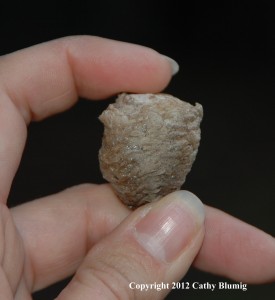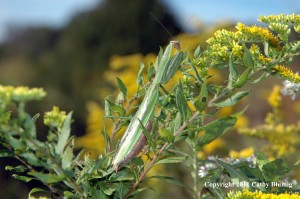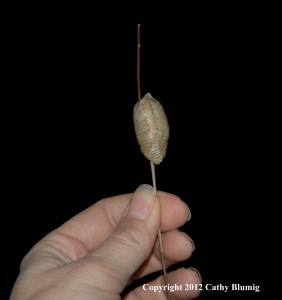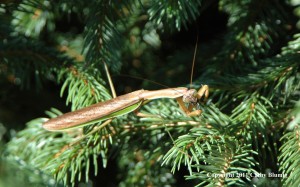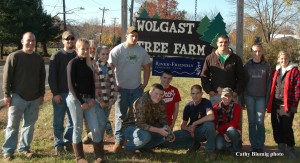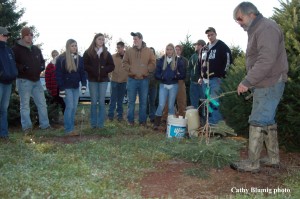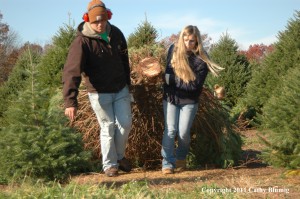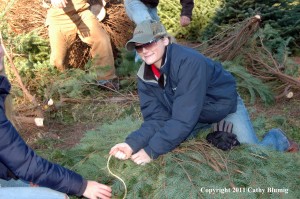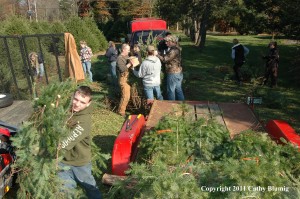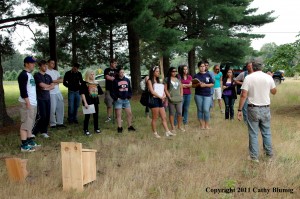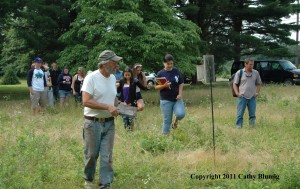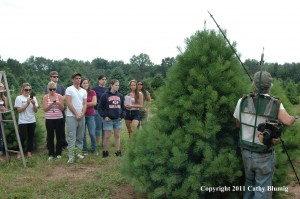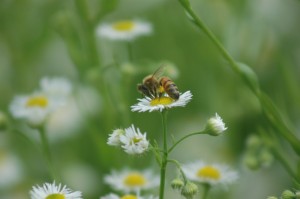We have mostly Chinese and European Mantids on our farm, and both species have ravenous appetites. We’ve seen them snacking on all manner of insects including grasshoppers, wasps, hornets, biting flies and even brown marmorated stink bugs (too bad they don’t only eat stink bugs, because if they did I think they would wipe out the stink bug population on our farm!). Because Praying Mantises are considered generalist predators they probably don’t have a huge impact on insect pests of Christmas trees, but they definitely eat some and are part of our Integrated Pest Management (IPM) plan for our farm which includes encouraging the presence of beneficial insects. Beneficial or not, we admire their sleek, cryptic look and we love to see them in our fields.
I’ve spoken with gardeners who’ve seen them eat tomato horn worms and other garden pests, which probably explains why so many home gardeners find the Praying Mantis to be an appealing addition to their yards. It should be noted that their legendary appetite isn’t just limited to pests and if they are hungry enough they will even eat their own kind if given the opportunity. Talk about a dog-eat-dog-world!
Raising Praying Mantids from an egg case can be an interesting and fun classroom project as well. To learn more about Praying Mantises, check out this link from the University of Kentucky Cooperative Extension Service: http://www.ca.uky.edu/entomology/entfacts/entfactpdf/ef418.pdf. We think it provides a nice introduction to this fascinating and beneficial insect.
We have egg cases from both Chinese mantises (Tenodera sinensis) and European mantises (Mantis religiosa), the European egg cases being more limited in supply. The egg cases were produced on our farm this past fall and cost $3.72 each, plus tax ($4.00 each total) – less than half of what many others are selling them. Folks who would like to buy a praying mantis egg case (or two, or three, …) are welcome to call and make an appointment for pick-up, or we will mail as many as you’d like as can comfortably fit in a US Postal Service Priority Mail Small Flat Rate Box with some padding for $6.00 in the continental United States. Because we have no idea how the egg cases will be handled once they leave our possession, we do NOT guarantee how many praying mantis nymphs will hatch or that they will even hatch at all. What we will guarantee is that the eggs were laid in the fall of 2011 and kept in refrigeration after they were gathered. They will be available for sale between now and mid-April, or while supplies last. We’re not set up to take credit cards, but we do accept cash (in person) or checks. Contact info@wolgasttreefarm.com or call 732-873-3206 for more information. Always include a phone number at which you can be reliably reached with all correspondence. It helps to move things along.
We like that Praying mantises are part of the scene at Wolgast Tree Farm. They fit right in with the bluebirds, honeybees, snapping turtles, and all the other creatures that call Wolgast Tree Farm home. Maybe a Praying Mantis or two would be a nice addition to your “back forty,” too!
